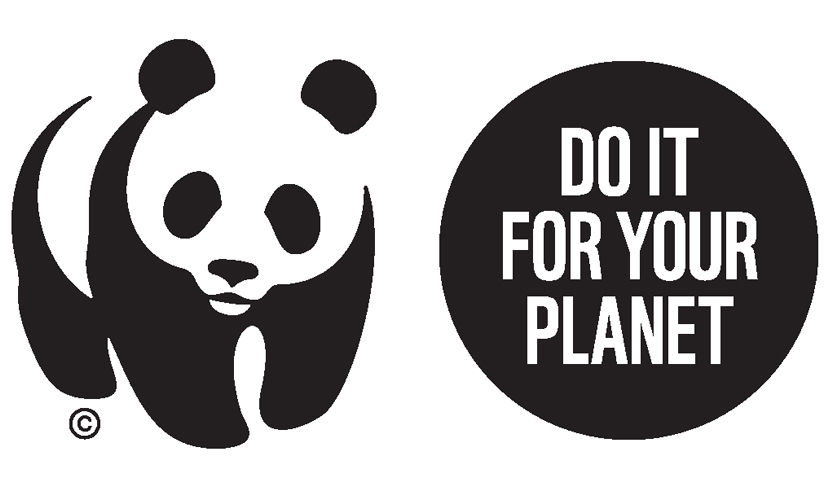World Wildlife Fund’s ReSource: Plastic program recently released its fourth annual public report, Transparent 2023, revealing how some of the world’s largest brands are tracking, measuring, and reporting on their respective plastic footprints. The data compiled in the report reveals insights and in-depth recommendations on tackling plastic waste within internal, corporate supply chains, and across wider multi-stakeholder efforts. The elimination of unnecessary, single-use plastic continues to be the most important action that companies can take to directly address the plastic pollution crisis through their own portfolios.
Transparent 2023 examines the plastic footprints of ReSource Members Amcor, Colgate-Palmolive, CVS Health, Kimberly-Clark Corporation, Keurig Dr Pepper, McDonald’s Corporation, Procter & Gamble, Starbucks, and The Coca-Cola Company. The report captures each company’s plastic by polymer type and form, their use of recycled content and sustainably sourced biobased content, and the likely waste management pathways for the aggregate portfolio. The comprehensive report includes progress made by each ReSource Member from 2021 to 2022 and compares year-over-year results for legacy Members.
“All companies should be reporting on their plastic footprint—something we are advocating for in the UN Global Treaty to End Plastic Pollution,” said Erin Simon, vice president of plastic waste + business at World Wildlife Fund. “ReSource Member companies are ahead of the curve, demonstrating that plastic reporting is not an onerous or impossible task. Their transparency enables lessons to be learned and actions to be taken that will reverberate across supply chains and industries worldwide.”
For the first time, ReSource is collecting comprehensive data from its Members on reuse efforts with the hope of sharing learnings on the best ways to eliminate plastic waste. WWF sees reuse systems emerging as a key strategy, with all nine Members exploring reuse in some capacity. This year’s Transparent report also measured progress and captured invaluable insights across four areas, including: eliminating unnecessary plastic, doubling global recycling and composting, shifting to sustainable inputs for remaining plastic, and improving data harmonization.
As for the 2023 key findings, please see the below top-level highlights:
- Five ReSource Members saw an overall reduction in their virgin fossil-based plastic tonnage from 2021 to 2022.
- Of the nine Members, four have reduced and five have increased their absolute tonnage of plastic since their baseline.
- Despite progress in some areas, the total weight of plastic in the aggregate portfolio increased by 0.8% to 7.26 million metric tons in 2022 from 7.20 million metric tons in 2021.
- Overall, ReSource Members have made progress to reduce problematic plastics. In 2022, these products made up 1.2% of Member portfolios, which is less than half of the 3.2% in the 2018 baseline year.
- Among ReSource Members, the use of recycled content has increased to 12% in 2022 from 10.2% in 2021.
- The share of packaging that is recyclable has increased to 72.5% in 2022 from 70.4% in 2021.
Learn more about how ReSource measures and analyzes data through the ReSource Footprint Tracker here.
WWF recently joined the Steering Committee of the Scaling Plastics Disclosure initiative to inform and support the expansion of the CDP’s plastic questionnaire. As the CDP questionnaire becomes increasingly robust and comprehensive, our intent is for it to replace the mandatory annual reporting for ReSource Members that currently occurs through the ReSource Footprint Tracker. As part of the Scaling Plastics Disclosure initiative and ReSource: Plastic, the ReSource Footprint Tracker serves as a tool for companies wishing to understand not only the amount and the kinds of plastics they are releasing into the market, but also the waste and leakage being generated as a result. It also provides a common framework for companies to report on their plastic impact.
Understanding the scope of the problem through plastic reporting is the first step to addressing plastic pollution. ReSource Members are demonstrating that plastic reporting is possible. However, voluntary corporate action is not sufficient to address the scale and urgency of the plastic waste crisis. National and international policy action, through a legally binding Global Treaty to End Plastic Pollution and Extended Producer Responsibility legislation, is critical to ensuring a future free of plastic waste. Six out of nine Members are actively engaged in the Global Treaty process.
To view the full report, click here. To view the executive summary, click here.
